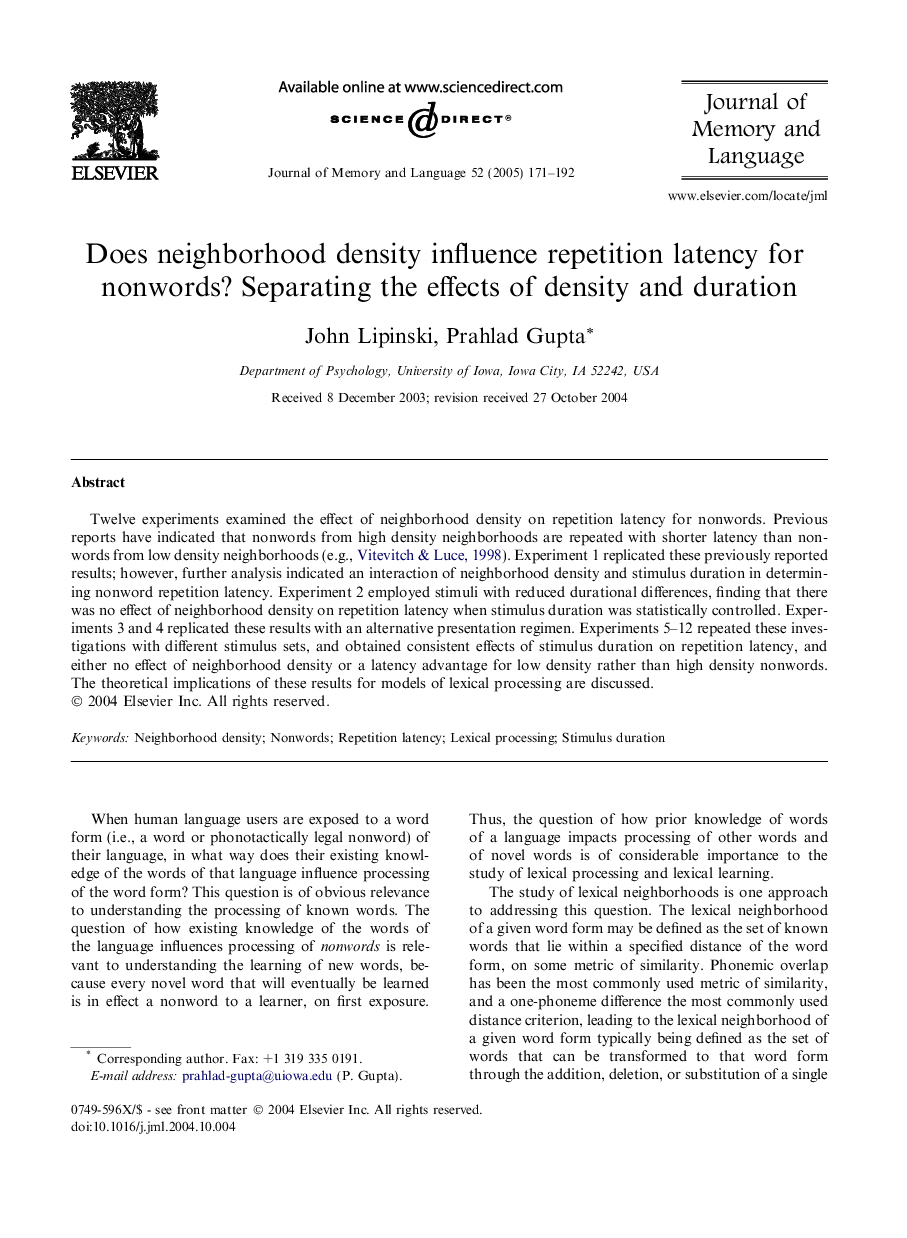| Article ID | Journal | Published Year | Pages | File Type |
|---|---|---|---|---|
| 10459835 | Journal of Memory and Language | 2005 | 22 Pages |
Abstract
Twelve experiments examined the effect of neighborhood density on repetition latency for nonwords. Previous reports have indicated that nonwords from high density neighborhoods are repeated with shorter latency than nonwords from low density neighborhoods (e.g., Vitevitch & Luce, 1998). Experiment 1 replicated these previously reported results; however, further analysis indicated an interaction of neighborhood density and stimulus duration in determining nonword repetition latency. Experiment 2 employed stimuli with reduced durational differences, finding that there was no effect of neighborhood density on repetition latency when stimulus duration was statistically controlled. Experiments 3 and 4 replicated these results with an alternative presentation regimen. Experiments 5-12 repeated these investigations with different stimulus sets, and obtained consistent effects of stimulus duration on repetition latency, and either no effect of neighborhood density or a latency advantage for low density rather than high density nonwords. The theoretical implications of these results for models of lexical processing are discussed.
Related Topics
Life Sciences
Neuroscience
Cognitive Neuroscience
Authors
John Lipinski, Prahlad Gupta,
